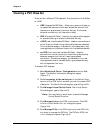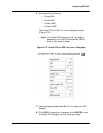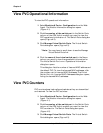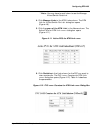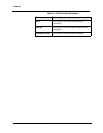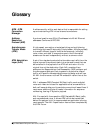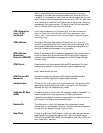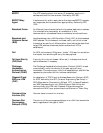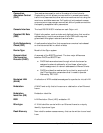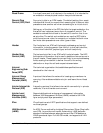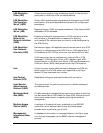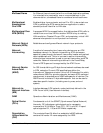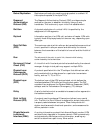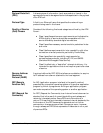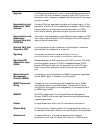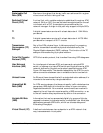
G-4
Cajun P550/P880 ATM Uplink User Guide, Version 1.1
Connection
Admission Control
(CAC)
Two mechanisms used to control the setup of virtual circuits.
Overbooking, which allows one connection to exceed permissible
traffic limits, assumes that other active connections are not using the
maximum available resources. Full booking limits network access,
once maximum resources are committed, and only adds connections
that specify acceptable traffic parameters.
Console Interface The local RS-232 ASCII interface on each Cajun unit.
Constant Bit Rate
(CBR)
Digital information, such as video and digitized voice, that must be
represented by a continuous stream of bits. CBR traffic requires
guaranteed throughput rates and service levels.
Cyclic Redundancy
Check (CRC)
A mathematical algorithm that computes a numerical value based
on the bits contained in a block of data.
Device Type Model of the Cajun system.
Dynamic Host
Configuration
Protocol (DHCP)
A superset of the BOOTP protocol. The two major differences
between DHCP and BOOTP are:
■ DHCP defines mechanisms through which clients can be
assigned a network address for a fixed lease, allowing for
serial reassignment of network addresses to different clients.
■ DHCP provides the mechanism for a client to acquire all of
the IP configuration parameters that it needs to operate.
Defined by RFC 1531.
Emulated LAN
(ELAN)
A collection of ATM endstations assigned to a particular virtual LAN.
Endstation A MAC-level entity that is the source or destination of an Ethernet
frame.
Endstation
Identifier (ESI)
Endstation identifier.
ESID LAN Emulation Client (LEC) endstation ID.
Ethertype A 16-bit identifier carried within an Ethernet frame to uniquely
identify its protocol type.
Flash Memory Non-volatile random access memory that can be written to and read
from.



